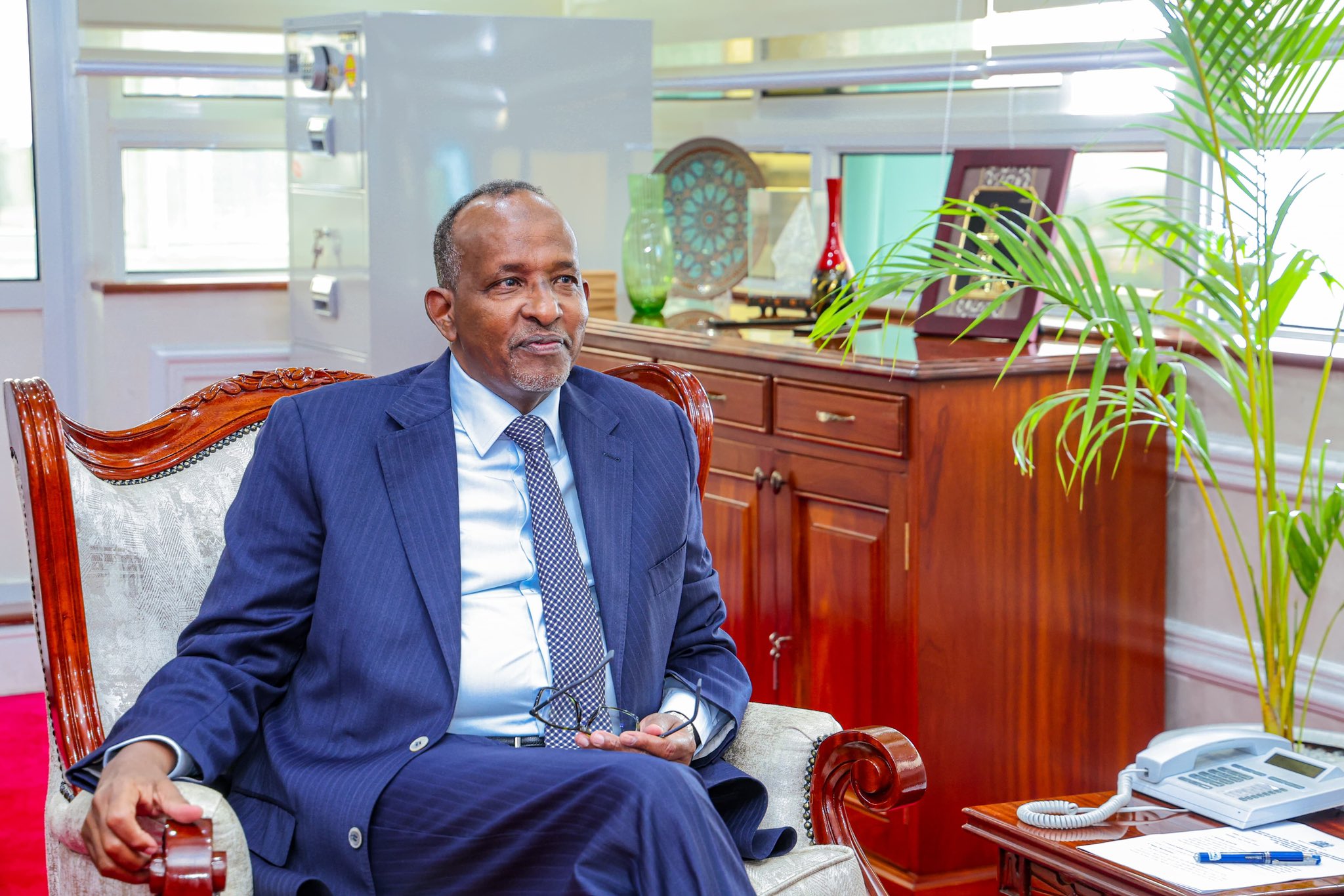
 Health CS Aden Duale/FILE
Health CS Aden Duale/FILE
The Ministry of Health is now calling for health data to be processed and hosted on locally developed platforms, after the US cut off access to critical medical records.
Most national health record systems in Kenya are funded by the US government, which withdrew funding in February.
Health CS Aden Duale, speaking at the World Health Assembly in Geneva last week, urged African countries to devise homegrown solutions and reduce reliance on external data management systems.
"The recent challenges have underscored the vulnerabilities in our health data infrastructure," Duale said.
"It's imperative that we invest in secure, locally managed data systems to ensure continuity and resilience in our healthcare delivery."
The funding freeze initiated by President Donald Trump's administration in January ended support for most health information systems in Kenya.
Such systems form the backbone of timely data reporting, disease surveillance and evidence-based decision-making.
In March, health officials complained they lost backend access to the primary data that can be re-analysed in different ways to answer new research questions.
The Kenya Legal and Ethical Issues Network wrote to the data commissioner, Margaret Kassait, asking if MoH was doing enough to safeguard sensitive personal data now in the hands of foreigners.
Although most health platforms are managed by the Kenyan government, they are physically hosted by servers operated by Usaid-funded implementing partners.
The ministry responded on April 4, saying patient data was “securely stored” and that it was unaffected by the suspension of US aid.
“The Ministry of Health wishes to assure all Kenyans that all data collected on HIV and STIs is primarily used to support patient/client care and service delivery,” the ministry said in a statement.
“This data is securely stored in servers hosted by the Ministry of Health and is only accessible to authorised personnel for the purpose of enhancing patient/client care and informing policy decisions.”
However, health officials, especially those in HIV programming, say they still do not have full access to systems supported by Usaid.
In a March 10 report on impact of the US aid cuts, the ministry said key platforms – such as KHIS2, KMFL, Afya KE, KenyaEMR, Chanjo KE, Damu KE and Kemsa I-LMIS – are now grappling with challenges.
“With donor funds curtailed, these platforms now suffer from maintenance gaps and technology shortages, severely hindering Kenya’s ability to monitor public health trends and respond promptly to emerging crises. The disruption of these systems creates a domino effect that may undermine overall health outcomes,” the ministry said.
The Unaids last month also reported Kenya was unable to access health data through the Kenya Health Information System, a vital tool for disease surveillance and health planning.
Additionally, the Kenya Demographic and Health Survey, a crucial programme for collecting health and population data, has been suspended.
The KDHS, funded by Usaid and managed by the Kenya National Bureau of Statistics, plays a significant role in informing health policy decisions.












